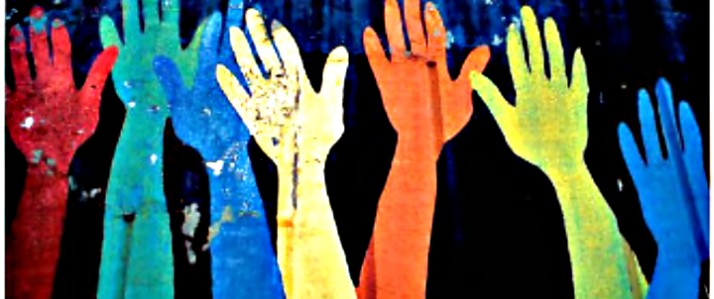I recently returned from a family gathering in Atlanta, a joyous time of family pride in the village that had provided direction, comfort and purpose to our ‘baby boy,’ who now walked proudly across the stage to accept his degree from Emory University. There was a shared feeling of hope about the unlimited possibilities that stretched out in front of this wonderful, smart African American young man. We laughed and told stories, tall tales and true ones.
Yet, one man’s story stood out as the most powerful, but also the most unbelievable. It, too, is a story of a young vision of justice, and one of personal sacrifice. It’s different and yet familiar.
The storyteller, the father of the graduate and my brother-in-law, Tommie Smith, was a student-athlete at San Jose State University in the late 1960’s. His athletic abilities in track and field placed him among the small premier elite in athletics and placed him on the United States team at the 1968 Olympics. He was a 24-year-old African American male and, at the time of the ’68 Olympics, he held 11 world records, the most ever held by a man or woman in the history of track and field. He was the father of a six-month old son, and the husband of a female athlete.
He won the Olympic gold medal in the 200 meters in a record setting 19.83 seconds in Mexico City. Instead of the adulation, lucrative endorsements, and a life of relative ease, as has been experienced by numerous athletes, he became a pariah, an outcast. His gold record race, his victory, would be accompanied by an asterisk for nearly 40 years.
All because of that incredible, then infamous victory stand moment during the playing of America’s national anthem. Tommie and his teammate raised their black-gloved fists in a salute while keeping their heads bowed. That silent gesture was televised live from Mexico City around the world. Tommie thought it was purposeful, thoughtful and respectful, while it made a quiet statement about America’s unfulfilled promises to minorities, to women, to those in poverty and suffering in the land of plenty.
The symbolism of the gesture was timeless: black socks on shoeless feet symbolizing poverty, a raised black-gloved hand and bowed head conveying respect for the people in America and around the world striving for freedom. He and John Carlos, Olympic bronze medalist, were booed, taunted, threatened and maligned – by the International Olympic Committee (IOC) and the American press.
His track exploits notwithstanding, Tommie Smith became best known as the gloved-fist of black rage and resistance, called “a Black storm trooper” by sportscaster Brent Musburger, and he and John were seen as an embarrassment to all who uphold the dream of amateur ideals of the Olympics, to paraphrase then-International Olympic Committee president, Avery Brundage. They became the problem, and were seen as embarrassments to decent American ideals.
In Atlanta last month, Tommie talked through those 1968 moments – the incredible highs and lows, the awe and fear he experienced walking around the Olympic stadium. The awe of a 24-year old in that magic moment, fear because of the numerous death threats he’d received in response to his stand for civil and human rights, and his co-founding of the Olympic Project for Human Rights (OPHR). Here was an athlete with something to say about rights and justice.
For many years afterward, there was a price to pay for quietly protesting America’s racist policies on the international stage, for showing solidarity with people’s struggles around the globe. Tommie and John were derided as militants, thugs, and for “casting a black eye” on America’s reputation. They endured threats to themselves, their extended families, and to their economic wellbeing.
It made me sad, angry and hyper-aware of the price we may have to pay when we speak up about injustice. I considered the possible gains and potential consequences when we challenge systems of oppression. And, even if we are not the interrupter, or identified as the leader, we can be a recipient of animosity and targeted for expressing a different opinion than what the majority may believe – or accept.
There is the saying that “freedom isn’t free.” I know, too, that injustice is very expensive. What gives me hope is an unfaltering sense of the rightness of taking a stand, holding onto a belief in our ability to create a stronger, more inclusive and just world; one in which each of us shares in building its strengths and we all benefit from its riches.
When I look at the recent justice victories around the state achieved by allies and MRG grantees, I don’t see their successes as just stand-alone victories. I see them as part of the long and winding road that many have walked to create real progressive change. Yes, the price of justice isn’t cheap.
Most of us won’t have Olympic moments or experience the power of worldwide recognition and celebrity, like my brother-in-law. We may feel fortunate to not find ourselves vilified, marginalized or endangered, either.
But our work to achieve justice for all can be the ‘gold medal’ we receive for believing in our power to create the just, joyful, zestful Oregon and world that we all deserve. I raise my hand for that moment to arrive.
NOTE: Silver medalist, Australian Peter Norman, was ridiculued and vilified upon his return to his country for wearing an Olympic Project for Human Rights button in solidarity with Tommie and John on the victory stand. In 2006, Tommie and John traveled to Australia to be pallbearers at his funeral.
Photo courtesy of www.tommiesmith.com





